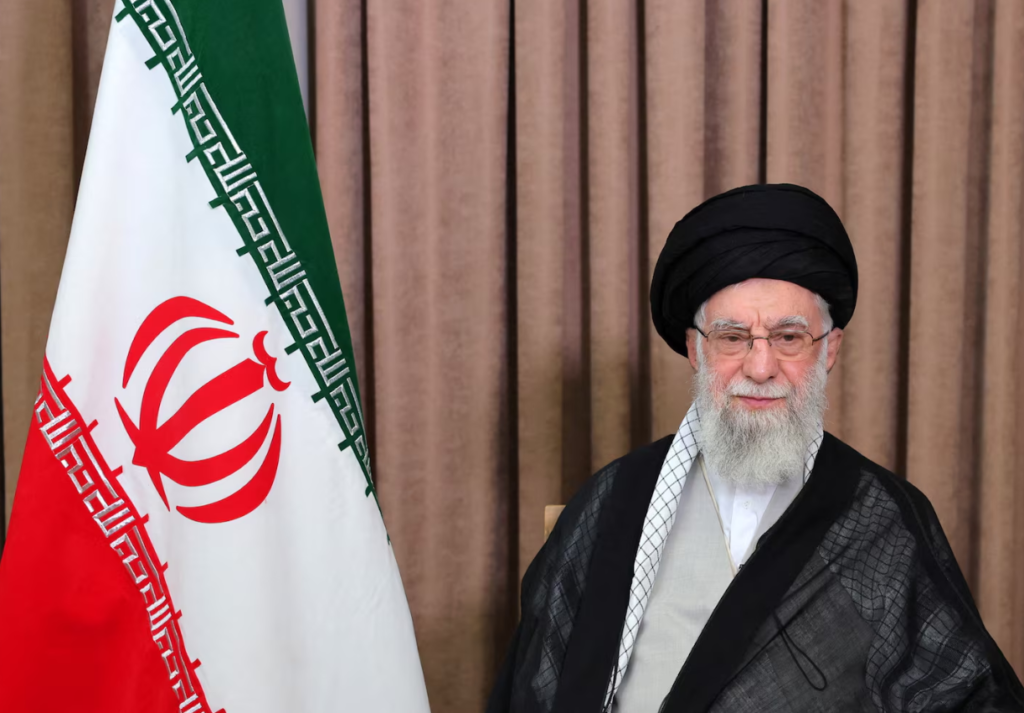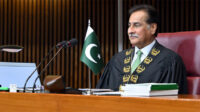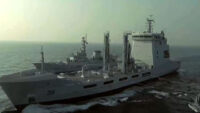The write-up has been submitted by Iqbal Latif
A Strategic and Civilizational Q&A with Iqbal Latif
Q1: Can the fall of Khamenei trigger regime collapse in Iran—like Gaddafi’s Libya or Saddam’s Iraq?
Iqbal Latif:
That’s a Western fallacy. Libya and Iraq were built around dictators—not deeply embedded ideological or civilizational infrastructures. When the dictators fell, the states crumbled into chaos.
Iran is fundamentally different:
It is not an accidental state—it’s an ancient, literate, culturally coalescent civilization with a 4,000-year identity.
“Emmanuel Always Gets It Wrong”: Trump On Macron’s Big Iran-Israel Claim
Air India’s Ahmedabad-London flight cancelled due to technical snag
To Turkey as Principal Pakistan Study Group Ankara
For more such Opinions & Blogs, click here.
Even if the regime weakens or fragments, Iran itself will not collapse.
You cannot “shock and awe” Persia into disintegration.
Gaddafi’s Libya was a tribalized state stitched together by oil money. Saddam’s Iraq was a Baathist dictatorship sustained by repression.
Iran, by contrast, is a civilizational entity, with a deeply literate society rooted in thousands of years of continuity, pride, and poetic resilience.
Q2: With Israel’s strikes and Iran’s proxy system neutralized, won’t there be a leadership vacuum?
Iqbal Latif:
Let’s examine the strategic collapse: Iran’s Axis of Resistance is decimated:
Hezbollah’s leadership eliminated
Assad’s fall confirmed
Hamas shattered
Houthis reduced to their last legs
IndiGo flight makes emergency landing at Nagpur after bomb scare
Iran’s State TV Under Israeli Attack
A 113 Km-Long Canal: Inside India’s Big Indus Waters Treaty Plan
Yes, this represents Khamenei’s strategic failure. But toppling one man will not unravel the entire republic.
Even Khamenei rose from modest clerical roots. His successor will likely emerge from the same security-intelligence-theological apparatus—not from Parisian exiles or Western-backed opposition.
This is not a personality cult. It’s a deeply ideological state with opaque but functioning succession mechanisms.
Q3: Is Iran united or fractured enough for regime change?
Iqbal Latif:
Iran is bifurcated, but not broken.
The divisions:
Millions of liberals, reformists, and youth yearning for openness
Millions of radicals, ideologues, and loyalists
A strong middle-ground shaped by theological, philosophical, and poetic traditions
The unity factors:
National identity anchored by Ferdowsi, Saadi, Hafez, and Khayyam
Pride in language, poetry, custom, and collective dignity
Cultural reverence that transcends political divisions
Even regime opponents would not cheer foreign bombing campaigns on Tehran.
This is not a vendor-society. These are people who read poetry at dinner and mourn collectively during Ashura.
Iran urgently signaling to Israel and US that it wants talks, end to hostilities: WSJ
Three injured in mysterious blast during reconstruction of mosque in IIOJK
War only option if India blocks Pakistan’s water, says Bilawal
Q4: Could foreign airstrikes accelerate regime change?
Iqbal Latif:
Absolutely not. Such strikes would rally the nation—not fracture it.
Even Tehran’s liberals won’t cheer as their cities burn. As Muharram approaches, the symbolism of resisting external aggression is deeply embedded—from Yazid to Karbala, from Saddam to Netanyahu.
Bombing them into democracy is not only ethically grotesque—it’s historically illiterate.
Even the most frustrated protesters would unite in the face of foreign invasion.
Q5: What exactly is collapsing then?
Iqbal Latif:
Khamenei’s projection model—the missiles, the militias, and the pan-Islamic counterbalance strategy.
His dream of regional dominance through Hamas, Hezbollah, Houthis, and Shi’a militias has imploded.
He overreached, believing ideology and missiles could replace diplomacy and alliances.
The regime’s teeth are broken, even if its bones remain.
The Axis of Resistance has become the Axis of Exhaustion.
India deploying 580 more paramilitary companies in IIOJK
Naseem Shah has no place in the team based on merit
“Tehran Residents Will Soon Pay The Price”: Israel’s Big Warning For Iran
Q6: What happens next—collapse, civil war, or reform?
Iqbal Latif:
Collapse: No
Civil war: Highly unlikely
Reform/recalibration: Most likely
A more cautious, post-Khamenei regime may emerge—perhaps more willing to coexist and less interested in exporting revolution.
The IRGC’s role may shift, and personal freedoms may open slightly.
But don’t expect liberal democracy overnight. The system will survive—bruised but recalibrated.
Q7: Can monarchists or the MEK take over?
Iqbal Latif:
Absolutely not.
The MEK is reviled inside Iran—viewed as traitors during the Iraq war.
Monarchists, though visible in exile, have no serious domestic base.
Most Iranians want dignity, reform, and justice—not royalty or discredited opposition movements.
Q8: Where does this leave Iran strategically?
Iqbal Latif:
Isolated. Unlike Pakistan—with China’s backing—Iran stands alone.
It has no contiguous great power ally.
Russia is exhausted by Ukraine and cannot project meaningful support.
China keeps Iran at arm’s length, wary of U.S. sanctions.
Iran needed to integrate with the West, especially after the nuclear deal.
Instead, ideology blocked diplomacy. Now, it’s paying the price.
Woman Threatens Petrol Pump Staffer With Revolver
UK appoints first woman to head MI6 intelligence service
Delhi-bound Air India flight returns to HK after mid-air technical issue
Q9: How does Pakistan compare in this regional shift?
Iqbal Latif:
Pakistan has played it smart—non-interventionist, but morally aligned.
It refrained from military entanglement in Iran’s conflict.
It voiced rhetorical solidarity against aggression.
It preserved its strategic corridor with China, Gulf ties, and nuclear deterrence.
For the first time in recent history, Pakistan, Turkey, and Iran are morally aligned, though only Pakistan possesses structural strength, alliances, and strategic balance.
Final Assessment: Iran Will Survive—But Khamenei’s Dream Will Not
Iran the civilization will endure. But the regime born of Khamenei’s expansionist dreams is collapsing under its own contradictions:
The missile strategy has failed.
The proxy system has dissolved.
The people are disillusioned, not broken.
If the regime is restructured—not destroyed but tamed—the Middle East may finally move toward balance over chaos.
Iran will rise again—not as a revolutionary power, but as a civilizational force, re-centered.
The Persian lion is licking its wounds, not roaring across the map anymore.
History won’t bury Iran—it will rebirth it, again.
For more such Opinions & Blogs, click here.
US Embassy in Israel sustains minor damage after Iranian missile strike
Iran wants to kill Trump, plotted assassination: Netanyahu’s explosive claim
Sonia Gandhi Admitted To Delhi’s Ganga Ram Hospital
Saudi Flight With Hajj Pilgrims Lands Safely In Lucknow After Technical Snag
‘No Landing Permission’: Hyderabad-Bound Lufthansa Flight Returns To Frankfurt Mid-Air
The write-up has been submitted by Iqbal Latif
Stay tuned to Baaghi TV for more. Download our app for the latest news, updates & interesting content!






